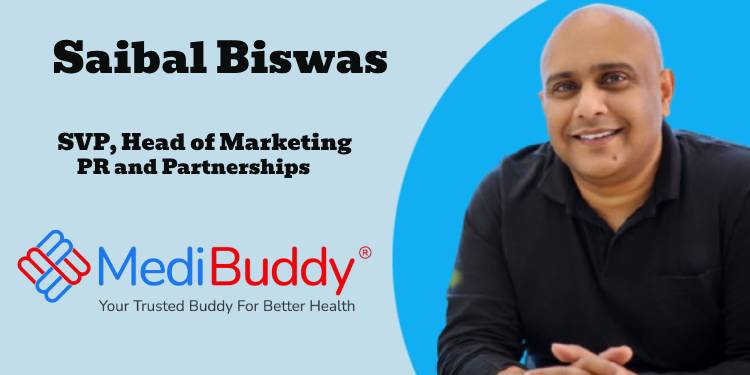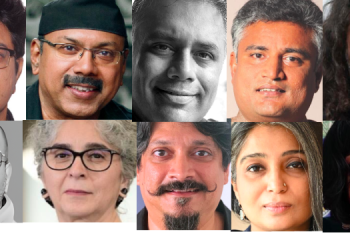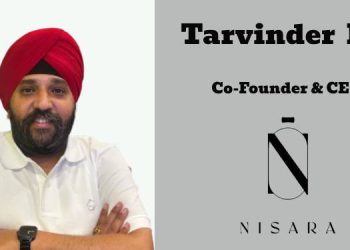MediBuddy, a digital healthcare company, had marked International Women’s Day with an interactive campaign—#HerHealthBuddy. This initiative aimed to challenge misconceptions, break stigmas and educate individuals about crucial aspects of women’s health.
Through a quiz format, insights and myth-busting facts, the campaign aimed to empower women to take control of their well-being and encourages society to prioritise women’s health beyond just one day of recognition.
Women’s health is often overlooked, misunderstood, or surrounded by misinformation. To bridge the knowledge gap, #HerHealthBuddy presented an interactive challenge—testing awareness of essential topics like menstruation, reproductive health and medical disparities.
With questions such as, “How many years does the average woman spend menstruating?” and “What’s the most common undetected health condition among women?”, the campaign highlighted vital but often unspoken facts. Each answer is backed by educational insights, shedding light on overlooked health concerns such as thyroid disorders, period stigma and the gender gap in medical research.
Women’s health isn’t just a ‘women’s issue’—it’s a family issue that impacts a community and ultimately spirals into a global issue. While society celebrates women’s achievements, real progress requires prioritising their health through education, support, and systemic change.
MediaNews4U.com caught up with Saibal Biswas, SVP, Head of Marketing, PR and Partnerships, MediBuddy
Q. What is going to be the strategy to build category awareness in a competitive landscape in 2025?
As the Expert Caregiver brand in the healthcare space, MediBuddy is committed to redefining high quality , accessible, seamless, and personalized healthcare for every Indian.
Our 2025 strategy is focused on expanding our services, deepening market penetration, and leveraging AI-driven hyper-personalization to further solidify our leadership in the digital healthcare space.
Key Focus Areas for 2025 Strategy:
● Expanding Healthcare Services & Driving Category Leadership
We will continue to broaden our offerings- Vision and Dental were the new additions last year while driving contextual and always-on healthcare awareness campaigns, ensuring that MediBuddy remains the go-to platform for all healthcare needs.
● Deepening Market Penetration & Enhancing Accessibility
By strengthening partnerships with insurance providers, hospitals and diagnostic centers, we aim to bridge the healthcare accessibility gap across India, making cashless and affordable healthcare a reality for millions.
● Hyper-Personalisation at an N=1 Level
AI-driven individualised healthcare journeys will enable users to receive personalised doctor recommendations, tailored health alerts, and proactive care solutions. This will also include localised health advisories on disease outbreaks (e.g., dengue spikes, pollution-related illnesses) and seasonal health risks, ensuring real-time, relevant healthcare support.
● Strengthening MediBuddy’s Role as the Expert Caregiver
Through educational and preventive health campaigns, we will continue to break myths, reduce stigma, and encourage proactive healthcare decisions, empowering individuals with the right information at the right time.
By expanding our services, deepening our reach, harnessing AI for hyper-personalisation and reinforcing our role as the Expert Caregiver, MediBuddy will continue to shape the future of digital healthcare in India.
Q. The Women’s Day initiative aimed to challenge misconceptions, break stigmas and educate individuals. Is this going to be the goal for a lot of marketing activities done in 2025?
Yes, the Women’s Day initiative was a great example of how MediBuddy doesn’t just promote healthcare services but also drives meaningful conversations around important health topics. In 2025, this approach will remain a core pillar of our marketing strategy. While awareness remains key, 2025 will be about actionable impact—ensuring that more people actively engage in preventive healthcare, break down stigmas, and turn to MediBuddy as their trusted healthcare partner.
For 2025, marketing initiatives will focus on challenging healthcare misconceptions and breaking stigmas around taboo topics such as menstrual health, mental well-being, and preventive care. Campaigns will address neglected health concerns like PCOS, stress management, and corporate burnout. The aim is to educate and empower people with simplified healthcare content, emphasizing myth-busting and early diagnosis. AI-driven insights will fuel personalised health awareness campaigns, targeting seasonal, geographic, and demographic-specific issues to have the right contextuality and relevance.
Engagement will continue around key health observances like WHO days and corporate wellness events, while staying responsive to emerging trends and health policy changes.
Lastly, initiatives will expand into offline activations with health camps and screenings, alongside corporate wellness partnerships to enhance preventive care accessibility.
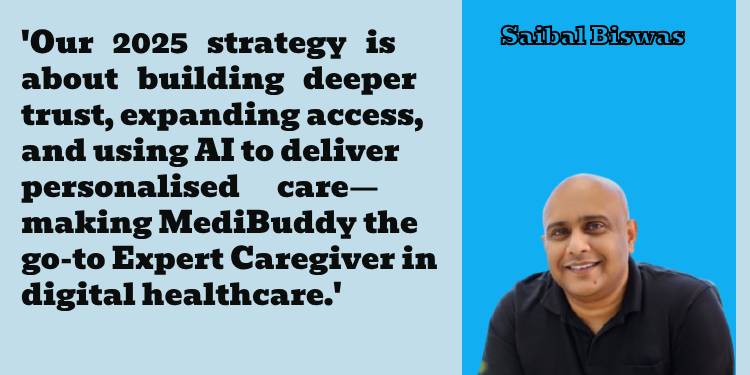
Q. MediBuddy reduced spending by 30% in 2024. In 2025 will there be a further reduction?
In 2024, we optimised our marketing investments while ensuring maximum impact. This was part of the marketing contribution to support the journey towards profitable growth for MediBuddy .
Our focus has always been on efficiency (at scale), innovation, and positive ROI-driven strategies.
In 2025, we will continue to take a data-backed approach, ensuring that every rupee spent delivers measurable value and multiple returns .
Rather than just looking at budget cuts, we are prioritizing smarter allocation, deeper consumer engagement, and leveraging technology to enhance brand reach and business growth.
Q. Will digital continue to be the main investment focus? Is it more cost effective?
Yes, digital will remain our primary investment focus as we continue to build and expand the category of digital healthcare in India. With a doctor-to-patient ratio of 1:843 and limited hospital infrastructure, scaling digital healthcare is essential to bridge the accessibility gap.
Our approach focuses on driving adoption among two key consumer segments:
1. Tech Enthusiasts (Innovators & Early Adopters) – Those who actively explore new digital services.
2. Pragmatists (Early Majority) – Users who rely on digital convenience for essential services.
We identify these groups using behavioral markers such as:



By targeting these digitally savvy consumers, we will continue to accelerate category adoption, making digital healthcare mainstream, accessible, and cost-effective for millions.
Q. At the same time ad money wastage continues to be a challenge in digital. What is the game plan going to be to tackle this?
We have been extremely prudent in reducing wastage in our digital spends, ensuring every rupee delivers maximum impact.
Our focus remains on quality over quantity, prioritizing high-impact campaigns over broad-reach tactics. We leverage data-driven insights to understand our audience better, track performance meticulously, and make informed decisions that drive real business outcomes.
By optimising for conversions rather than just impressions, refining our targeting, and continuously improving ad copy and landing pages, we ensure our ads reach the right audience effectively.
Robust conversion tracking allows us to measure campaign effectiveness accurately, while we also explore new formats and platforms to enhance engagement.
Additionally, we maximise efficiency by repurposing top-performing content across different formats, ensuring sustained impact with minimal waste. In 2025, we will continue to refine our approach, making every spend work harder and smarter.
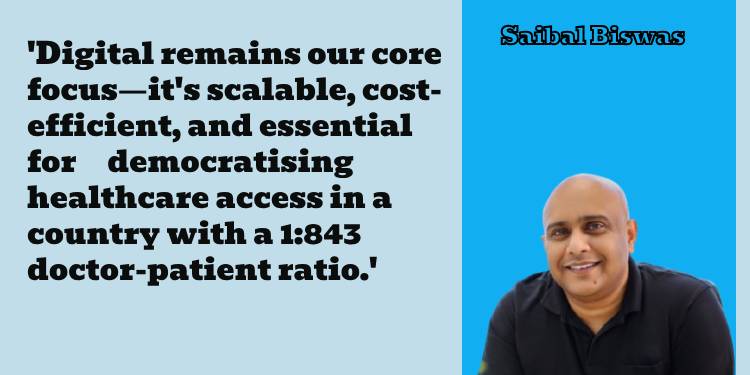
Q. What are some of the campaigns and activities that will be done in the coming months?
We follow a meticulously planned annual marketing calendar, ensuring that our initiatives remain relevant, impactful, and innovative.
Unlike FMCG or other high-frequency usage categories, healthcare sees low frequency of usage but extremely highly intent-driven consumer engagement. This makes it even more critical for us to position MediBuddy as an expert caregiver, consistently building brand awareness and trust so that whenever the next healthcare need arises, consumers instinctively turn to us at MediBuddy to help then navigate their healthcare journey .
Our campaigns and activities are strategically aligned with contextually relevant healthcare moments throughout the year.
We focus on:
● Health Awareness Days: We actively engage our target consumers during significant global health events like World Health Day, Diabetes Day, Mental Health Day, and Heart Day, ensuring that we provide credible and educational content to drive awareness.
● Seasonal & Festival-Based Initiatives: Our campaigns address health concerns linked to changing seasons, such as monsoon-related infections, winter flu, and summer dehydration. Similarly, during festivals, when indulgence is high, we run health-focused awareness drives on topics like digestive/ gastrointestinal health, stress management, and post-celebration wellness.
● Real-Time Health Alerts & Contextual Campaigns: We remain agile in responding to emerging healthcare concerns, such as:
● Rising cases of specific diseases (e.g. dengue outbreaks in certain cities).
● Heavy pollution levels impact respiratory health in metro cities.
● Sudden spikes in viral infections or lifestyle diseases due to environmental or social factors.
● Corporate & Employee Health Initiatives: Since MediBuddy caters significantly to the corporate sector, we also conduct workplace wellness programs often educational in nature, on-ground health camps and digital campaigns tailored for employee well-being.
● Preventive Healthcare Messaging: Beyond reactive healthcare, we emphasize proactive well-being through campaigns that promote regular health checkups, fitness, mental wellness and immunity-building habits.
● Engagement Through Digital & Offline Channels: We ensure our messaging reaches the right audience across LinkedIn (our primary channel), Meta, X, and other digital platforms, while also leveraging offline activations where relevant.
By staying ahead of emerging health trends, leveraging AI-driven insights, and ensuring contextual relevance in all our campaigns, we ensure that MediBuddy remains top-of-mind for consumers when they need healthcare solutions.
Q. Could you shed some light on what the social media strategy is going to be? Is an understanding of the nuances of each platform important like X, Meta?
Our social media strategy is built on understanding the nuances of each platform and tailoring our approach to maximise engagement. Given our strong focus on corporate employees in India, LinkedIn remains our primary channel, where we drive thought leadership, industry conversations, and meaningful engagement with professionals, HR leaders, and decision-makers relevant to the healthcare ecosystem .
At the same time, we recognize the importance of being present across platforms to connect with our target audience in the right way. X (formerly Twitter) helps us engage in real-time discussions, Meta (Facebook & Instagram) allows for community-driven storytelling, and emerging platforms help us stay ahead of digital trends.
Our 2025 approach will focus on three key pillars:
1. LinkedIn-First Strategy: Strengthening our presence through expert-led content, corporate health insights, and engagement-driven campaigns.
2. Platform-Specific Content: Tailoring messaging for each channel—quick updates and industry commentary on X, visual narratives on Instagram, and broader conversations on Facebook.
3. Data-Driven Optimisation: Leveraging analytics and AI-driven insights to refine targeting, improve content performance, and enhance engagement across all digital touchpoints.
By strategically utilising each platform while making LinkedIn our core focus, we aim to drive relevant conversations, reinforce MediBuddy’s leadership in digital healthcare, and create lasting impact.
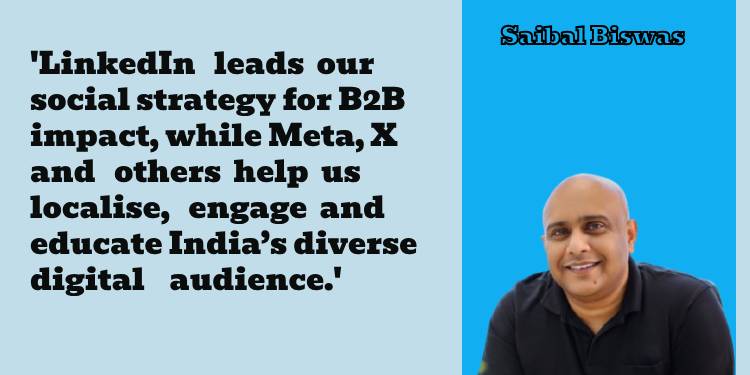
Q. How has MediBuddy integrated AI into the company? How is it helping the company identify market gaps?
MediBuddy is a tech-driven company with AI deeply embedded in our operations, enhancing efficiency for both consumers and key stakeholders like doctors, insurers, and corporate partners. By leveraging AI, we are not only improving user experiences but also addressing critical challenges such as fraud detection and clinical decision support. We have developed two powerful AI-driven tools that are transforming digital healthcare:
SHERLOCK – AI Tool to Fight Fraud, Waste, and Abuse (FWA)
● SHERLOCK proactively detects anomalies in claims and transaction data, preventing fraudulent activities and reducing financial losses for insurers and corporate partners.
● By ensuring that only valid claims are processed, SHERLOCK minimizes inefficiencies and enhances trust in healthcare benefits.
● Impact: SHERLOCK helped an MNC save INR 6.3 crore in a single financial year, demonstrating its effectiveness in fraud prevention and financial optimisation.
CLARA – AI-Powered Co-Pilot for Doctors
● CLARA acts as a real-time assistant during consultations, offering diagnostic insights, treatment recommendations, and clinical summaries based on patient history.
● It checks for possible drug interactions or contradictions based on prescribed medicines, ensuring safer and more effective treatment plans for patients.
● By reducing administrative burden, CLARA allows doctors to focus more on patient care, improving consultation efficiency and overall healthcare outcomes.
AI’s Role in Identifying Market Gaps
MediBuddy’s AI continuously analyses patient demand, consultation trends, and healthcare utilization patterns to identify unmet needs in the market. This helps us:
● Predict healthcare demand and expand services in underserved regions.
● Optimise service efficiency by identifying bottlenecks in consultation availability, medicine delivery, and lab test turnarounds.
● Personalise healthcare experiences by recommending relevant services based on user behavior.
By integrating AI across our platform, MediBuddy is driving a smarter, fraud-resilient, and highly efficient healthcare ecosystem. Our commitment to AI-powered innovation ensures we stay ahead in delivering high quality, accessible, and trustworthy healthcare to millions.”
Q. What are your views on Google tightening its Search policies given that SEO marketing is important for MediBuddy?
While Google’s stricter policies make SEO harder, they reward brands that invest in trust, authority, and user-first content. For MediBuddy, this is an opportunity for us to strengthen and gain more organic visibility by focusing on our key brand attributes like high quality, expertise, and relevance to the user.
As a brand, we focus on expert-authored medical content (e.g., articles written/reviewed by doctors), actionable, engaging health guides (rather than keyword-stuffed blogs) and interactive & structured content (e.g., health risk calculators, symptom checkers) which will help with our SEO ambitions.
Q. Building trust and credibility is a key challenge due to consumer concerns over data privacy. How will MediBuddy address this?
Building trust and credibility is paramount in digital healthcare, especially with growing consumer concerns over data privacy. At MediBuddy, we take a privacy-first approach, ensuring that user data is handled with the highest level of security, transparency, and compliance.
We address this through three key focus areas:
1. Robust Data Security: We adhere to the highest industry standards, including HIPAA and ISO certifications, and employ advanced encryption protocols to safeguard sensitive health information.
2. Compliance with New Data Policies: We are fully aligned with India’s evolving data protection regulations, including the Digital Personal Data Protection (DPDP) Act, ensuring that our practices meet the latest legal and ethical standards.
3. Transparency & User Control: We provide clear privacy policies and empower users with full control over their data, ensuring they understand how their information is used and stored.
Additionally, our AI-driven solutions are designed with privacy at their core—ensuring data is anonymised and used solely to enhance user experience and positive healthcare outcomes. By proactively investing in security, compliance, and transparency, we not only meet regulatory requirements but go beyond them to build lasting consumer trust.
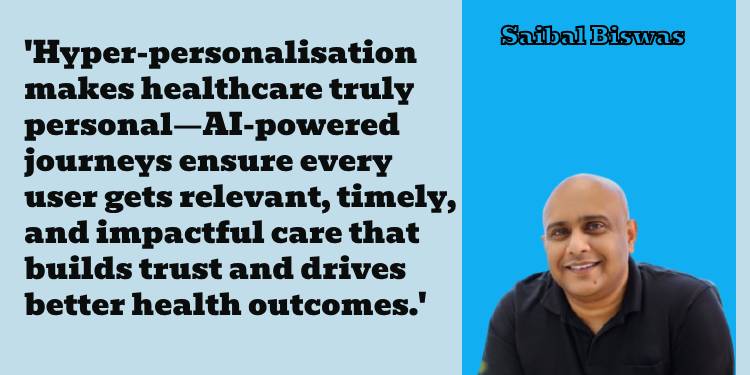
Q. What role is hyper personalisation playing in helping MediBuddy differentiate itself?
Hyper-personalisation is a game-changer in digital healthcare, and at MediBuddy, it plays a crucial role in differentiating us. Given that healthcare is deeply personal, a one-size-fits-all approach doesn’t work. Consumers expect tailored experiences that address their unique health needs, and that’s where our data-driven, AI-powered personalisation strategy comes in.
We leverage hyper-personalisation in three key ways:
1. Customised Healthcare Journeys: From AI-driven doctor recommendations to proactive health check-up reminders based on user history, we ensure that every individual gets the right care at the right time.
2. Precision in Service Delivery: By analyzing user preferences, medical history, and behavioural data, we offer tailored content, relevant health plans, and targetted offers, making healthcare more accessible and effective.
3. Enhanced Engagement & Trust: Personalised nudges, reminders, and wellness tips help users stay on top of their health, driving better adherence and fostering trust in our platform.
In a category like healthcare, where trust and relevance are critical, hyper-personalisation not only improves user experience but also ensures better health outcomes—strengthening our positioning as India’s most trusted digital healthcare platform.

